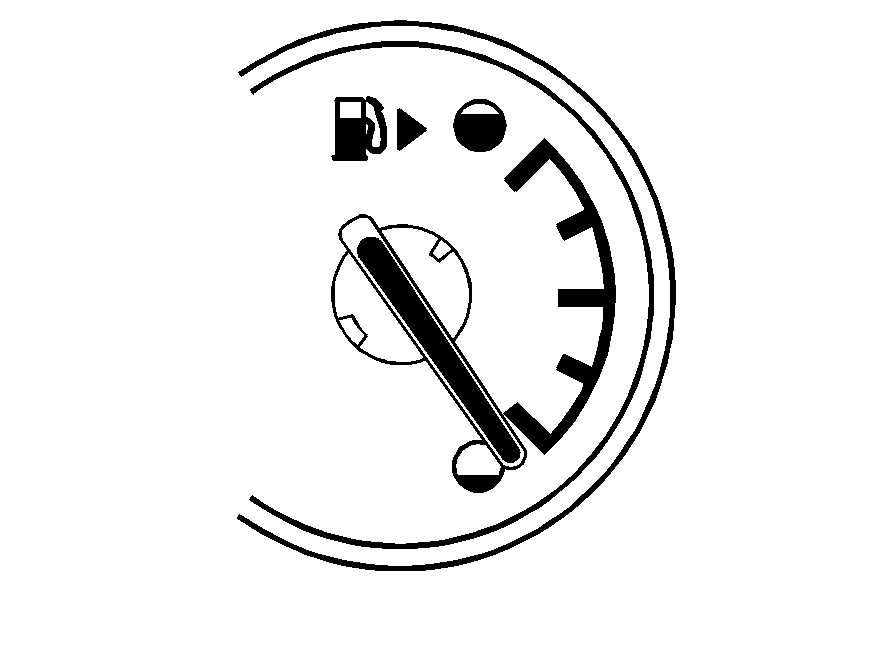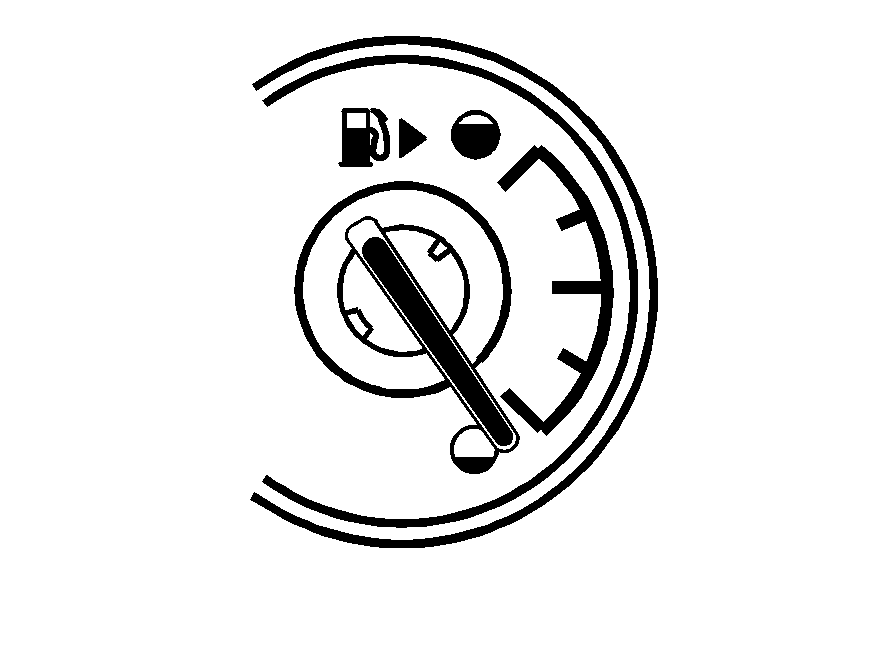
When the ignition is on, the fuel gage tells you about how much fuel you have left in your tank.
An arrow on the fuel gage indicates the side of the vehicle the fuel door is on.
When the indicator nears empty, the low fuel light will come on. You still have a little fuel left, but you should get more soon. See Low Fuel Warning Light for more information.
Here are four things that some owners ask about. None of these show a problem with your fuel gage:
| • | At the service station, the fuel pump shuts off before the gage reads full. |
| • | It takes a little more or less fuel to fill up than the gage indicated. For example, the gage may have indicated the tank was half full, but it actually took a little more or less than half the tank's capacity to fill the tank. |
| • | The gage moves a little when you turn a corner or speed up. |
| • | The gage takes a few seconds to stabilize after the ignition is turned on, and will go back to empty when you turn the ignition off. |
For your fuel tank capacity, see Capacities and Specifications.

When the ignition is on, the fuel gage tells you about how much fuel you have left in your tank.
When the indicator nears empty, the low fuel light will come on. You still have a little fuel left, but you should get more soon. See Low Fuel Warning Light for more information.
Here are four things that some owners ask about. None of these show a problem with your fuel gage:
| • | At the service station, the fuel pump shuts off before the gage reads full. |
| • | It takes a little more or less fuel to fill up than the gage indicated. For example, the gage may have indicated the tank was half full, but it actually took a little more or less than half the tank's capacity to fill the tank. |
| • | The gage moves a little when you turn a corner or speed up. |
| • | The gage takes a few seconds to stabilize after the ignition is turned on, and will go back to empty when you turn the ignition off. |
For your fuel tank capacity, see Capacities and Specifications.
